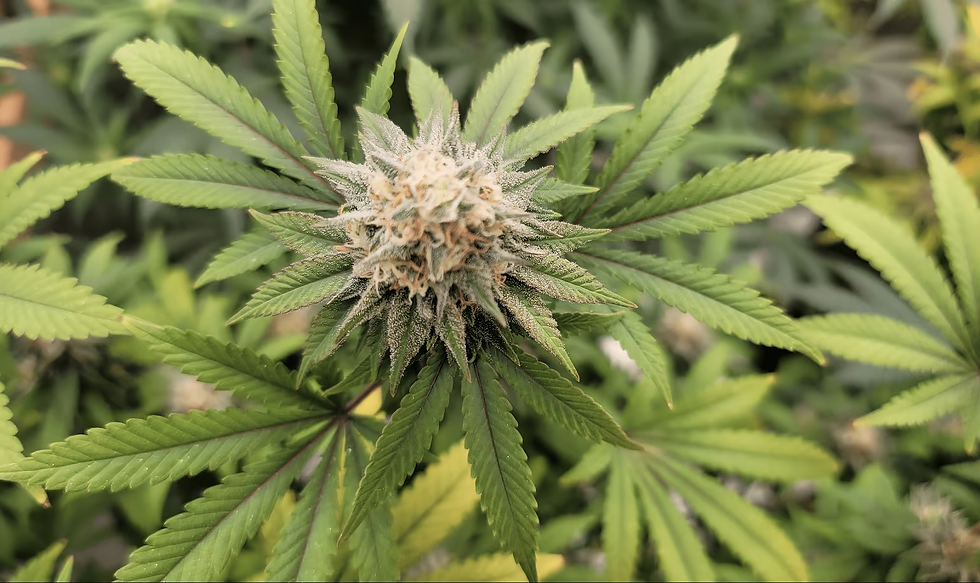News: Researchers Announce They’ve Discovered A New Cannabinoid In Marijuana.
- Manuel Basegla
- May 9, 2025
- 2 min read
Updated: Sep 9, 2025
Published 12:00 AM EST, Fri May 09, 2025
Researchers have announced that they’ve successfully identified a new cannabinoid—cannabielsoxa—produced by the marijuana plant as well as a number of other compounds “reported for the first time from the flowers of C. sativa.” The team of government and university researchers out of South Korea also evaluated 11 compounds in cannabis for antitumor effects in neuroblastoma cells, finding that seven “revealed strong inhibitory activity.”

Researchers in South Korea have identified a new cannabinoid, cannabielsoxa, and several other compounds previously unreported in Cannabis sativa flowers, including four chlorin-type molecules. Through chromatographic and molecular analysis, they isolated 11 compounds and tested their toxicity on neuroblastoma cells. Seven compounds, primarily known cannabinoids such as CBD, CBDA, and delta-8 THC, demonstrated strong antitumor activity, while cannabielsoxa itself did not. These findings offer an early foundation for developing cannabinoid-based treatments for neuroblastoma, a serious pediatric cancer.
Complementing this discovery, U.S. researchers released the most extensive meta-analysis on medical cannabis and cancer-related symptoms, evaluating over 10,000 peer-reviewed studies. The results indicate a striking 3:1 ratio of studies supporting cannabis efficacy versus those that do not. The analysis found “overwhelming scientific consensus” that cannabis helps alleviate cancer-related symptoms like pain, stress, and insomnia. Meanwhile, access issues and regulatory limitations remain challenges for many patients, particularly those in economically vulnerable situations.
Additional studies continue to validate the therapeutic and potential anticancer properties of cannabinoids like delta-9 THC, CBD, and CBG. These findings, while mostly based on in vitro and animal models, suggest that cannabinoids may inhibit tumor growth and induce cancer cell death. Despite regulatory hurdles, this growing body of evidence is pushing cannabis closer to a recognized role in mainstream oncology, though researchers emphasize the need for further human trials and clarity on dosing standards. These findings mark a pivotal moment for the cannabis industry, highlighting both scientific breakthroughs and validation of medical cannabis's role in cancer care. The discovery of cannabielsoxa and other novel compounds expands the chemical diversity of the cannabis plant, offering new opportunities for pharmaceutical development. Meanwhile, the U.S. meta-analysis underscores the therapeutic credibility of cannabis, potentially paving the way for wider medical adoption and influencing regulatory shifts. For cannabis producers, researchers, and biotech firms, these advancements signal growing legitimacy and offer new frontiers for investment, innovation, and collaboration in precision medicine and oncology.
Source: Marijuana Moment
























































